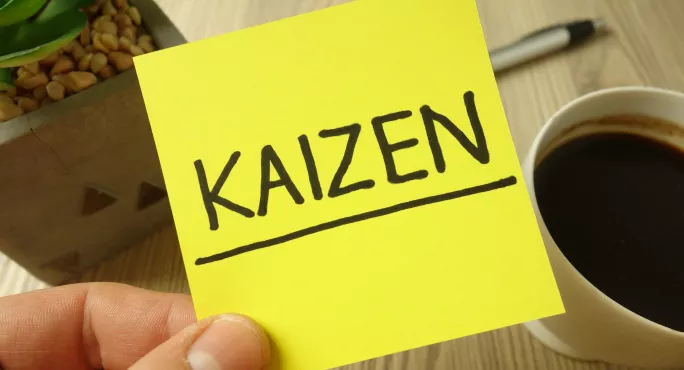- Home
- 4 small ways to improve your curriculum right now
4 small ways to improve your curriculum right now

“Kaizen” is a Japanese term meaning “continual improvement”. The kaizen philosophy is all about incremental change over time and a continuous drive to improve standards by adopting innovative solutions to challenges that arise. This philosophy has been successfully applied to several industries and has led to substantial and sustained change.
How might we apply this idea to curriculum development and design? And how might this help us during the challenges that we face in the current educational landscape?
All good curriculum design starts with the “what”. What is it that pupils will learn and why? How does this shape their world view, and does it provide them with sufficient knowledge to think critically, question what they consume and create reasonable conclusions? Does the curriculum provide pupils with ample opportunity to engage their thinking, make connections and set their knowledge into motion. This all concerns the “what” of the curriculum and is undoubtedly crucial.
Kaizen curriculum
However, the current educational climate makes me lean more towards considering the “how”. How the curriculum is delivered has become somewhat more complex in recent months in response to the coronavirus pandemic. As educators, we’re having to think creatively about how we can address challenges that were already present - for example, closing the advantage gap, with added layers of complexity, such as restricted interaction in the classroom and, in some cases, delivering learning remotely.
This is where kaizen philosophy comes in. Kaizen encourages the people engaged in the delivery of a process to be innovative problem-solvers. After all, who is best to respond to challenges around assessment for learning in the classroom than teachers? By empowering teachers to come together and bring the solutions that work for them within the bounds of our “new normal”, we will establish new best practice and inventive ways of responding to the challenges we face now.
We by no means have all the answers, but kaizen encourages us to take a hopeful approach to incremental change, until we find the right fit in terms of curriculum delivery for our pupils and teachers. This year, we will need to modify the curriculum, but it’s important we try to maintain its structural integrity where possible so that we don’t narrow it unnecessarily.
Here are some tips for how you can do this.
Prioritise reading
Reading is at the heart of all academic achievement and needs to be prioritised as such. Ask yourself: how can reading be incorporated within the wider curriculum to make simultaneous gains? Can we more intentionally explore disciplinary reading in an attempt to strengthen pupils’ reading competencies?
Realistic timetabling
Setting a realistic timetable for your curriculum will ensure that breadth remains in terms of coverage, but also that there is enough breathing space to allow teachers to recap, revise and revisit where necessary.
Curriculum equity
Now, more than ever, it’s crucial that curriculum equity is a key consideration. Are all pupils accessing the curriculum as it stands? If pupils are self-isolating, are they still able to engage with the curriculum meaningfully?
Get creative
If ever there was a time for innovation, this is it. What creative new ways can we ensure, for instance, that our pupils are still reading daily at home? Can audiobooks be recorded on YouTube? Can we use writing or art or music as a demonstration of knowledge gained from across the curriculum?
Our curriculum is what our schools stand for and it should be a coherent and well-defined entity. But, as the contexts of our schools and, indeed, the world changes, the kaizen approach can ensure that we are continually refining and strengthening our curriculum to ensure that all pupils are making progress over time and so that we take small steps towards the most effective delivery during these rather unusual times.
Lekha Sharma is a primary teacher and deputy head at a school in South London. She tweets @teacherfeature2. Her book Curriculum to Classroom is available for pre-order now.
Register with Tes and you can read two free articles every month plus you'll have access to our range of award-winning newsletters.
Keep reading with our special offer!
You’ve reached your limit of free articles this month.
- Unlimited access to all Tes magazine content
- Save your favourite articles and gift them to your colleagues
- Exclusive subscriber-only stories
- Over 200,000 archived articles
- Unlimited access to all Tes magazine content
- Save your favourite articles and gift them to your colleagues
- Exclusive subscriber-only stories
- Over 200,000 archived articles



